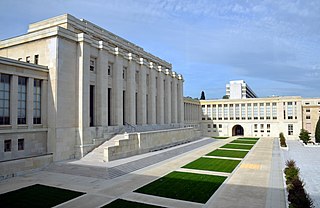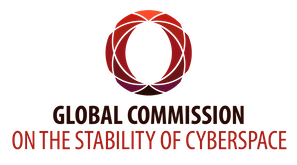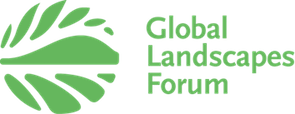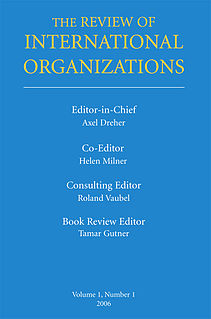 W
WThe Assembly of Armenians of Europe (AAE) is a pan-European international organization.
 W
WAn international organization is a stable set of norms and rules meant to govern the behavior of states and other actors in the international system. Organizations may be established by a treaty or be an instrument governed by international law and possessing its own legal personality, such as the United Nations, the World Health Organization and NATO. International organizations are composed of primarily member states, but may also include other entities, such as other international organizations. Additionally, entities may hold observer status.
 W
WThe Pan-Armenian Congress is a charitable non-governmental organization.
 W
WThe World Armenian Congress, also known as the Congress of World Armenian Organizations, is an international union of Armenian public organizations.
 W
WThe Antarctic Micronational Union (AMU) is an intermicronational organization that aims to regulate micronational claims in Antarctica. The purpose of the AMU is to protect the claims of its members against other claimants.
 W
WThe Coordination Group for Meteorological Satellites (CGMS) is an international organization created in 1972 to coordinate the satellite systems that support global operational meteorology.
 W
WThe Earth System Governance Project is a long-term, interdisciplinary social science research programme originally developed under the auspices of the International Human Dimensions Programme on Global Environmental Change. It started in January 2009.
 W
WThe Global Commission on the Stability of Cyberspace was a multistakeholder Internet governance organization, dedicated to the creation of diplomatic norms of governmental non-aggression in cyberspace. It operated for three years, from 2017 through 2019, and produced the diplomatic norm for which it was chartered and seven others.
 W
WThe Global Landscapes Forum (GLF) is a multi-stakeholder forum dedicated to promoting the landscape approach.
 W
WThe World Economic Forum (WEF), based in Cologny, Geneva Canton, Switzerland, is an international NGO, founded on 24 January 1971 by Klaus Schwab. The foundation, which is mostly funded by its 1,000 member companies – typically global enterprises with more than five billion US-Dollar in turnover – as well as public subsidies, views its own mission as "improving the state of the world by engaging business, political, academic, and other leaders of society to shape global, regional, and industry agendas".
 W
WGlobcal International is a membership cooperative, non-profit international nongovernmental organization, and research development commission of independently recognized goodwill ambassadors from embassies, states, cities, and international organizations. Globcal's founding members are professionals with social media advocacy skills and backgrounds in foreign relations, diplomacy, sociology, psychology, philosophy, law, conservation and other academic disciplines.
 W
WThe International Romani Union, formerly known as the International Gypsy Committee and International Rom Committee, is an organization active for the rights of the Romani people. Its seat is in Vienna. The International Romani Union also has offices in Skopje, North Macedonia, and Washington, D.C., USA.
 W
WThe International Union of Railways is an international rail transport industry body.
 W
WThe Joint Chiefs of Global Tax Enforcement (J5) is a global joint operational group, formed in mid-2018 to combat transnational tax crime. Composed of the Australian Taxation Office (ATO), the Canada Revenue Agency (CRA), the Fiscale Inlichtingen- en Opsporingsdienst (FIOD), Her Majesty's Revenue & Customs (HMRC), and Internal Revenue Service, Criminal Investigation (IRS-CI), the J5 members work together to gather information, share intelligence, conduct operations and build the capacity of tax crime enforcement officials.
 W
WThe Latin American Council of Social Sciences (CLACSO) is an international non-governmental institution, created in 1967 from an initiative of UNESCO, an institution in which it has Associative status. Currently, it brings together 680 research centers and postgraduate programs in various fields of the social sciences and humanities, located in 51 countries in Latin America and the Caribbean, as well as in the United States, Africa and Europe. Its headquarters are in Buenos Aires, Argentina. The current executive secretary of the organization is Karina Batthyány.
 W
WThe following is a list of the major existing intergovernmental organizations (IGOs).
 W
WThe Lublin Triangle is an economic, cultural, and political regional–cooperation initiative of three European countries – Lithuania, Poland, and Ukraine – for the purposes of strengthening mutual military, cultural, and economic cooperation and supporting Ukraine's integration into the European Union and the NATO. The Lublin Triangle initiative invokes the integrative heritage of the 1569 Union of Lublin.
 W
WThe Review of International Organizations is a peer-reviewed academic journal that analyzes operations and policies of both governmental and non-governmental organizations. Scientific contributions cover agencies such as the International Monetary Fund, the World Trade Organization, the World Bank, the G7, the NATO, the European Court of Human Rights, the United Nations, and similar formal institutions. In addition, the journal offers research on networks of international cooperation, including the Global Development Network and the International Competition Forum.
 W
WStay Grounded is a global network of more than 160 member organizations promoting alternatives to aviation to address climate change. Founded in 2016, their work is rooted in fostering sustainable transport and campaigning against controversial climate strategies. The network consists of local airport opposition groups, climate justice activists, NGOs, trade unions and academics, among others.
 W
WThe International Union of Railways is an international rail transport industry body.
 W
WThe Union of International Associations (UIA) is a non-profit non-governmental research institute and documentation center based in Brussels, Belgium, and operating under United Nations mandate. It was founded in 1907 under the name Central Office of International Associations by Henri La Fontaine, the 1913 Nobel Peace Prize laureate, and Paul Otlet, a founding father of what is now called information science.